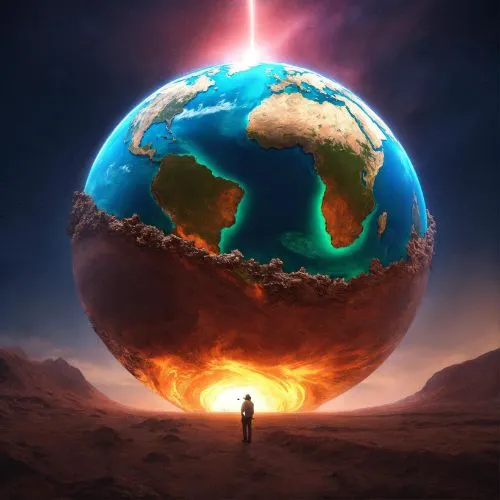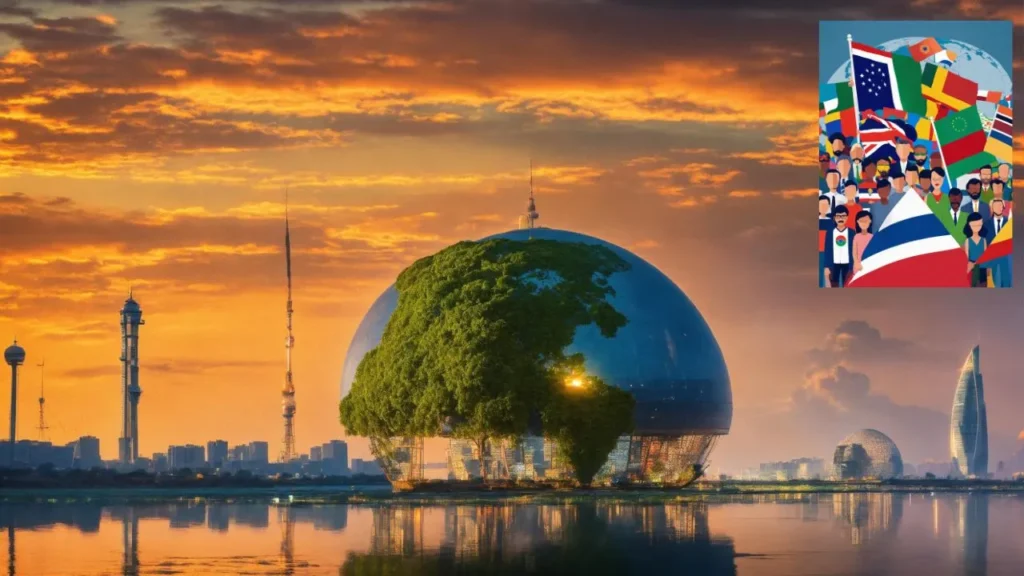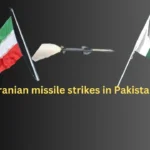Climate change is one of the grave issues that the world is facing right now. And it needs to be addressed to stop the further damage that would be done to our planet. Increased global warming, carbon gas emissions, melting of glaciers, and situations of flood have intensified the issue.
And therefore it needs to be addressed and the countries around the globe are working towards it to get the desired result of controlling the damage that climate change is causing. And therefore many initiatives have even taken in this direction.
Table of Contents
UNFCCC – United Nations Climate Change Conference or Conference
One of the major initiatives is The United Nations Climate Change Conference or Conference of the Parties of the UNFCCC, which started in the year 1994.
And currently it is in news because of the COP28 which was held in Dubai, UAE from 30th November 2023 to 12th December 2023. And in this conference a lot of points were discussed to combat the challenge of Climate change and India also participated actively and shared some initiatives about which we’ll discuss later in the article. But before that let’s understand the history of COP.
History of COP
Before understanding COP we need to know about the term UNFCCC(United Nations Framework Convention on Climate Change). So basically The United Nations Conference on Environment and Development also known as The Earth Summit took place in the year 1992 to address the climate change issues and what are the solutions to it. And the result of the summit led to the formation of UNFCCC which is a framework that focuses on the participation of countries to stabilize and reduce the green house games which ultimately leads to global warming I.e increase in temperature and leads to climate change problems.
The UNFCCC was ratified by 197 countries and therefore these countries meet every year to discuss the possible ways of reducing such effects and to examine the results of previous efforts and thus these annual meetings are known by the name of COOPERATION OF PARTIES(COP28).
And these COP meetings have been conducted regularly from the day it was started.
Now let’s talk about some of the important COP meetings till date.
COP 3 (1997)
The major highlights of this meeting was the Kyoto Protocol. It was the first initiative in regards to the responsibility of the countries in the reduction of greenhouse emissions. It was ratified by around 39 countries of the world. India signed the Kyoto Protocol on 26th august 2002. The Protocol categorized green house games into 6 categories: carbon dioxide(Co2), methane, nitrous oxide (N2O), hydrofluorocarbons (HFCs), perfluorocarbons (PFCs) and sulfur hexafluoride (SF6). But countries like the US, Australia and China did not sign the agreement.
Cop 21 (2015)
This meeting took place in Paris in the year 2015. And this proposed the Paris Agreement which was a legally binding treaty at the international level to restrict the global temperature at 2° C and below 1.5°C. It was accepted by 196 countries. And majorly focuses on strengthening the developing countries abilities to adapt to climate change and also tries to provide financial support to the developing countries to help themselves. And had also put some emphasis on the efforts to be made at the country level by including NDC in the country. And a Global stocktake report was also added which assess the progress made towards achieving the agreement’s goal.
COP 26 (2021)
This meeting was held in Glasgow, Scotland in the year 2021 during the Covid times. Glasgow Climate Pact was the major outcome of this meeting in which it clearly stated the phasing out the use of coal and other fossil fuels which lead to the emission of greenhouse gases. It also established the Glasgow Financial Alliance for Net Zero to consolidate various financial institutions around the world to provide aid to the developing countries and help them in handling the climate change crisis. Although much effect has not been seen till date.
COP 27( 2022)
For the first time in the history of COP meetings, focus was put on the impact and the damage that had been done till date. And therefore A loss and damage fund was made to assess the damage and to work upon it and to use the financial resources carefully and judiciously. And major focus was on diverting these resources to the developing countries to help them.

COP 28 ( 2023)
In the present this meeting is the most important one and needs to be addressed carefully. So it took place in Dubai, UAE.
Cop 28 The key initiatives are-
- The loss and Damage Fund was made operational from this meeting to compensate for the effects of climate change. The World Bank is made the Interim host for four years and all developing countries are eligible to apply under this fund and all the countries around the globe are welcomed for contributing voluntarily. And some funds are designated to least developed countries and small island developing countries.
- Transition from Fossil fuels has been explicitly stated in COP28 and has addressed the effects it is causing to the environment. An emphasis has been put on the transition from fossil fuel to renewable energy like water , wind to cut down carbon emissions by 2050. And had made its final declaration despite the disapproval and opposition from the oil producing states.
- Global Goal Adaption which was established under the Paris agreement to basically ameliorate the climate change adaptation by increasing awareness and to fund countries to help them in this Adaption process. It majorly focuses on three issues of climate induced water scarcity reduction, climate resilient food and agriculture production and strengthening Resilience against climate related health impacts.
- Declaration to triple Nuclear energy. India has been a supporter of it and aims to triple the nuclear energy capacity by 2050. And it was supported by the shareholders of international financial institutions.
- Coal Transition Accelerator
It was introduced by France in collaboration with other countries. And focuses on sharing knowledge, providing financial support and policy designs to help in just and way transition from coal to clear energy. - CHAMP for climate action. It was signed by 65 national governments which would focus on building cooperation among nations in the planning, financing and implementation of the climatic initiative and strategies.
- Climate Finance: As you know , financial help has been the major objective of the Cop 28 Summit, so climate finance was one of the major goals in this meeting which focused on developing a fund. The United Nations Conference on Trade and Development (UNCTAD)has stated that the developed countries owe to the developing countries in the context of Climate Change in the present time. And therefore they owe USD 500 billion in 2025 under the new collection quantified goal for climate Finance.
So these are the major highlights of the Cop 28 meeting which was held in Dubai UAE.
Now let’s talk about some of the major initiatives or the rules which India has played till now in the climate change process (Cop 28).
INDIA’s Role and Initiatives Cop 28
India has always been an active participant whenever it’s about climate change. It has always put forward its opinions actively and things which it feels are good for the world.
But one of the major things which itox about is regarding climate justice as the developing countries and the developed countries are very much different in their Outlook towards the climate change crisis. As it is known by the whole world that the developed countries have been the major contributor to the greenhouse gas emissions and the carbon emissions and now the developing countries are working towards achieving their goals for development but the balance which is required can’t be made in the present times but the developing countries are also working towards this problem and their for the need the support of the developed countries to in this area.
But let’s set aside this conflict right now and let’s talk about the initiative India has taken in this area and try to help the world at the Global Stage.
So the first one is the establishment of the International Solar Alliance. It was presented by India to fight back the problem of fossil fuels as India is the home to renewable energy like solar energy and wind energy. It particularly focused on having a different alternative which is of low carbon emission and would work out as a transformational energy solution for developing countries as well as for the least developed countries or the developing island countries. The ISA is headquartered at Haryana.
Now let’s focus on the initiative switch the Indian government has put forward in the Cop 28 meeting 2023.
Global River cities Alliance(GRCA)
It was led by the national mission for clean Ganga under the ministry of Jal Shakti, Governor of India.
It focuses on making an Alliance between the 275 + Global rivers in 11 countries and this Alliance would majorly focus on exchanging knowledge regarding the special systems which would help in the proper functioning of these river systems. And it also highlights India’s role in sustainable handling of these rivers.
Green credit initiative
This initiative has been launched to create a global platform which provides other countries to exchange their ideas and programs related to environment conservation. Its major focus is on two points or areas we can say that are afforestation and water conservation.
Conclusion- Cop 28
In the end, we need to understand that the climate is changing at a very drastic pace. We are not able to understand it much at this point of time even if scientists around the world are warning us at every moment of time. As this issue is very sensitive and therefore it needs some steps to be taken at this point of time only. Initiatives like the Kyoto Protocol, Montreal protocol and Paris agreement need to be followed with a responsible Outlook. As situations like flood in Pakistan, melting of glaciers in Antarctica, expansion of the Ozone hole, increasing temperatures are making news headlines everyday. Therefore, we need to reduce the greenhouse emissions and carbon emissions and in response we need to adopt renewable energy and find the ways by which or techniques by which we could use them judiciously and cost effectively. And India is also trying to use its renewable resources like wind energy by installing windmills in states like Tamil Nadu and Rajasthan. so we need to work on the global level but before that we have to work at our respective levels and as the responsible citizens of our country we need to work towards helping the country and the world too.







